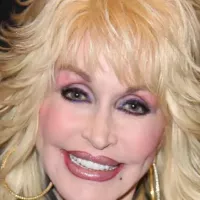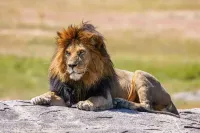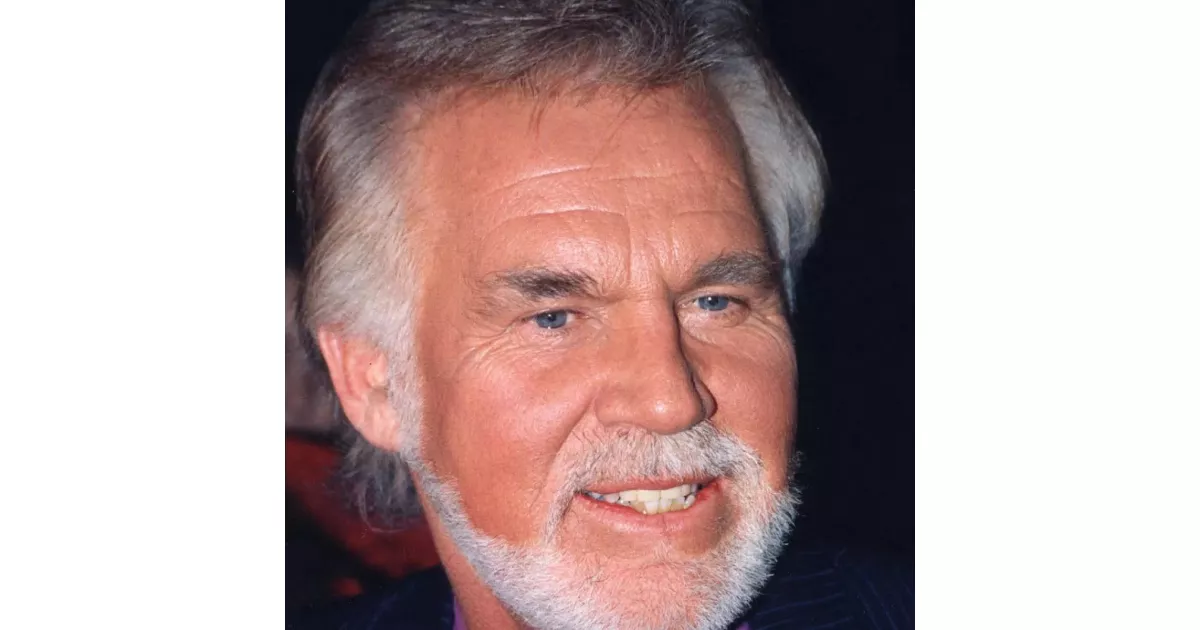Kenny Rogers was a highly successful American singer and songwriter known for his crossover appeal across various music genres, including country, pop, rock, folk, and jazz. He achieved remarkable chart success with over 120 hit singles and topped both country and pop album charts for over 200 weeks in the US alone. His global record sales surpassed 100 million, solidifying his place as one of the best-selling music artists ever. Rogers' enduring popularity and successful genre transitions made him a true icon in the music industry, earning him induction into the Country Music Hall of Fame in 2013.
1904: Birth of Kenny Rogers' Father
Edward Floyd Rogers, Kenny Rogers' father, was born in 1904.
1949: Talent Show Win at the Texan Theatre
In 1949, Kenny Rogers won a talent show at the Texan Theatre.
1956: Graduation from Jefferson Davis High School
Kenny Rogers graduated from Jefferson Davis High School in 1956.
1957: Minor Hit: "That Crazy Feeling"
Kenny Rogers had a minor solo hit with the song "That Crazy Feeling" in 1957.
May 15, 1958: Marriage to Janice Gordon
On May 15, 1958, Kenny Rogers married Janice Gordon.
1958: Solo Release: "That Crazy Feeling"
Kenny Rogers released his solo single, "That Crazy Feeling," in 1958.
April 1960: Divorce from Janice Gordon
In April 1960, Kenny Rogers and Janice Gordon divorced.
October 1960: Marriage to Jean
Kenny Rogers married his second wife, Jean, in October 1960.
October 1963: Marriage to Margo Anderson
Rogers' third marriage was to Margo Anderson in October 1963.
1965: Disbanding of the Bobby Doyle Three
The Bobby Doyle Three, a jazz group that Kenny Rogers was a member of, disbanded in 1965.
1966: Joining the New Christy Minstrels
In 1966, Kenny Rogers joined the folk ensemble, the New Christy Minstrels, as a singer and double bass player.
1966: Release of "Here's That Rainy Day"
Kenny Rogers released the jazzy rock single "Here's That Rainy Day" in 1966, but it was not a success.
1967: Formation of the First Edition and String of Hits
After leaving the New Christy Minstrels, Kenny Rogers and fellow members formed the First Edition, achieving a series of hits on both the pop and country charts.
1967: Formation of the First Edition
Kenny Rogers, along with other members, formed the First Edition in 1967.
1969: Success of "Ruby, Don't Take Your Love to Town"
The First Edition, with Kenny Rogers taking more of a leadership role, experienced success with their song "Ruby, Don't Take Your Love to Town" in 1969.
1975: Divorce from Margo Anderson
In 1975, Kenny Rogers and Margo Anderson divorced.
1975: National Commercial for Guitar Course
In 1975, Kenny Rogers was the face of a national commercial advertising a guitar course.
1975: Death of Kenny Rogers' Father
Kenny Rogers' father, Edward Floyd Rogers, passed away in 1975.
1975: The First Edition Disbands
The First Edition disbanded in 1975.
1976: Launch of Solo Career
Following the disbandment of the First Edition, Kenny Rogers launched his solo career in 1976.
1976: Release of Debut Solo Album and "Kenny Rogers" Album
Kenny Rogers released his debut solo album, "Love Lifted Me," and his second album, "Kenny Rogers," in 1976.
1976: Signing with United Artists
Kenny Rogers signed a solo deal with United Artists in 1976 and began a four-year partnership with producer Larry Butler.
1976: Formation of Bloodline Backing Band
While Kenny Rogers often collaborated with session musicians for his recordings, he formed a dedicated backing band called Bloodline in 1976 to accompany him on tours. The group began as a trio and remained a constant presence throughout his career. In the 2006 documentary about his life and career, "The Journey," Rogers expressed his admiration for musicians who maintain a consistent touring band, emphasizing the importance of familiarity and shared experience in delivering exceptional performances.
October 1, 1977: Marriage to Marianne Gordon
Kenny Rogers married actress Marianne Gordon on October 1, 1977.
1977: Release of "Lucille" and Success of Kenny Rogers Album
In 1977, Kenny Rogers released "Lucille," a single that topped charts in 12 countries and sold over five million copies. This success propelled his album "Kenny Rogers" to number one on the Billboard Country Album Chart, marking a significant milestone in his post-First Edition career.
1978: Release of "The Gambler"
Kenny Rogers released his signature song, "The Gambler," in 1978.
1978: Press Release for "Every Time Two Fools Collide"
The 1978 press release for the album "Every Time Two Fools Collide" highlighted the mutually beneficial partnership between Kenny Rogers and Dottie West. Rogers acknowledged West's role in solidifying his country music career, while West credited him with expanding her audience.
1980: Collaborations with Kim Carnes, Lynda Carter, and Lionel Richie
Kenny Rogers collaborated with various artists in 1980. He had a hit duet with Kim Carnes, "Don't Fall in Love with a Dreamer," and performed "You and Me" with Lynda Carter on her television special. His collaboration with Lionel Richie on "Lady" reached number one on the charts.
1980: Grammy Award for "The Gambler" and Start of "The Gambler" Film Series
Kenny Rogers won a Grammy Award for his song "The Gambler" and starred in the first installment of "The Gambler" television film series in 1980.
1980: End of Rogers/Butler Partnership
The successful songwriting and production partnership between Kenny Rogers and Larry Butler ended in 1980. Despite this, they would later collaborate on the albums "I Prefer the Moonlight" in 1987 and "If Only My Heart Had a Voice" in 1993.
1981: Purchase of ABC Dunhill Building and Establishment of Lion Share Studios
In 1981, Kenny Rogers made a significant investment in the music industry by purchasing the former ABC Dunhill building and transforming it into Lion Share Studios, a state-of-the-art recording facility in Los Angeles.
1981: Release of "Share Your Love" and Collaboration on "My Love"
In 1981, Kenny Rogers released the chart-topping album "Share Your Love," produced by Lionel Richie. The album featured hits like "I Don't Need You" and "Through the Years." Rogers also provided backing vocals for Richie's top 5 hit "My Love" that year.
1982: Six Pack Movie Release
In 1982, Kenny Rogers starred in the movie "Six Pack", where he played a race-car driver. The film was a box office success, earning over $20 million in the United States.
1982: Release of "Love Will Turn You Around" and Film Debut
Kenny Rogers released the album "Love Will Turn You Around" in 1982, featuring the hit title track, which also served as the theme song for his film debut in "Six Pack."
1983: Collaboration with Barry Gibb and Release of "Eyes That See in the Dark"
Kenny Rogers collaborated with Barry Gibb of the Bee Gees for his 1983 album "Eyes That See in the Dark." Gibb produced the album, which included the hit title track and the number one single "Islands in the Stream," a duet with Dolly Parton initially intended for Diana Ross.
1983: Collaboration with David Foster and Sheena Easton on "We've Got Tonight"
Kenny Rogers partnered with producer David Foster in 1983, resulting in the hit Bob Seger cover "We've Got Tonight," a duet with Sheena Easton. The song achieved both commercial success and critical acclaim, reaching the top 10 on the Billboard Hot 100.
1984: Release of "Once Upon a Christmas" and "Kenny & Dolly: A Christmas to Remember"
Following their successful duet, Kenny Rogers and Dolly Parton released a collaborative Christmas album, "Once Upon a Christmas," and a corresponding TV special, "Kenny & Dolly: A Christmas to Remember," in 1984, further solidifying their musical partnership.
January 28, 1985: Participation in "We Are the World"
On January 28, 1985, Kenny Rogers joined a group of 45 renowned artists to record "We Are the World." The charity single, aimed at raising funds for famine relief in Africa, became a global phenomenon, reflecting Rogers's commitment to humanitarian causes.
1985: Release of Duet "Real Love"
Kenny Rogers and Dolly Parton continued their successful collaboration in 1985 with the release of the duet "Real Love." The song topped the U.S. country singles chart, demonstrating their enduring appeal as a musical duo.
1985: Release of "What About Me?" and "The Heart of the Matter"
Kenny Rogers released two successful albums in 1985: "What About Me?" featuring the Grammy-nominated title track with James Ingram and Kim Carnes, and "The Heart of the Matter," produced by George Martin and featuring David Foster on backing music. Both albums were commercial successes, with "The Heart of the Matter" reaching number one on the charts.
1986: Kenny Rogers' America Publication
In 1986, Rogers, a passionate photographer, released his first photo book titled "Kenny Rogers' America".
1986: Appearance on "The Phil Donahue Show"
Kenny Rogers appeared on "The Phil Donahue Show" in 1986, discussing his upbringing.
1986: Voted "Favorite Singer of All Time"
Readers of USA Today and People voted Kenny Rogers as the "Favorite Singer of All Time" in 1986.
1987: Garry Rush's World Sprintcar Championship Win
Garry Rush, driving a Gambler sprint car from Rogers' Gambler Chassis Co., won the unofficial World Sprintcar Championship in 1987 at the Claremont Speedway in Perth, Western Australia.
1987: Reunion with Larry Butler for "I Prefer the Moonlight"
Kenny Rogers and Larry Butler briefly reunited in 1987 to work on the album "I Prefer the Moonlight," marking a temporary return to their successful collaborative partnership.
1987: Your Friends and Mine Publication
Rogers further explored his passion for photography by publishing a second photo book in 1987, titled "Your Friends and Mine".
1988: Grammy Win for "Best Country Collaboration with Vocals"
Kenny Rogers and Ronnie Milsap won a Grammy Award in 1988 for "Best Country Collaboration with Vocals" for their song "Make No Mistake, She's Mine." This accolade further solidified Rogers's standing as a respected figure in the music industry.
1989: Release of "Christmas in America"
In 1989, Kenny Rogers released his second Christmas album, "Christmas in America," under Reprise Records, adding to his repertoire of holiday music and continuing his successful relationship with the label.
1991: Hosting "The Real West" on A&E
Expanding his career beyond music, Kenny Rogers began hosting the historical documentary series "The Real West" on A&E in 1991. His involvement in the show continued until 1994, demonstrating his interest in history and storytelling.
1991: Kenny Rogers Roasters Launch
In 1991, Kenny Rogers partnered with former KFC CEO John Y. Brown Jr. to launch the restaurant chain "Kenny Rogers Roasters".
1991: Dottie West's Death
Tragically, Dottie West died in 1991 at the age of 58 from injuries sustained in a car accident. Kenny Rogers, a close friend and frequent musical collaborator, was with her mere hours before the accident, as revealed in his 2012 biography "Luck Or Something Like It."
1992: Co-ownership and Headlining at Grand Palace Theatre
Between 1992 and 1995, Kenny Rogers became a co-owner and headliner at Branson, Missouri's Grand Palace Theatre. This venture showcased his entrepreneurial spirit and commitment to live entertainment.
1993: Second Reunion with Larry Butler for "If Only My Heart Had a Voice"
Kenny Rogers and Larry Butler collaborated once again in 1993 on the album "If Only My Heart Had a Voice," demonstrating their enduring musical connection despite the formal end of their partnership in 1980.
1993: Divorce from Marianne Gordon
The marriage of Kenny Rogers and Marianne Gordon ended in divorce in 1993.
1994: Release of "Timepiece" and Ownership of Grand Palace Theatre
In 1994, Kenny Rogers released "Timepiece," an album featuring jazz standards, a genre he was passionate about from his early days. Notably, this album was released by Atlantic Records, marking a shift from his previous label.
1995: Continued Hosting of "The Real West"
From 1995 onwards, reruns of "The Real West," the historical documentary series hosted by Kenny Rogers, began airing on The History Channel, further extending the show's reach and impact.
1995: Starring in "Big Dreams and Broken Hearts: The Dottie West Story" and TNN Interview
In 1995, Kenny Rogers played himself in the CBS biographical film "Big Dreams and Broken Hearts: The Dottie West Story," which portrayed the life of his close friend and musical partner, Dottie West. That same year, he spoke about their collaboration in a TNN interview, highlighting her emotional singing style.
1996: Release of "Vote For Love"
In 1996, Kenny Rogers released "Vote For Love," an album where the tracklist was determined by fan requests for their favorite love songs. This unique approach, a collaboration with QVC's record label, onQ Music, resulted in a number one hit on the UK country charts and demonstrated Rogers's strong connection with his audience.
June 1, 1997: Marriage to Wanda Miller
On June 1, 1997, Kenny Rogers married Wanda Miller. This marriage lasted for 22 years, until Rogers' death.
1999: Release of "The Greatest" and "She Rides Wild Horses"
In 1999, Kenny Rogers released the single "The Greatest," a touching song about life from a child's perspective, viewed through the lens of a baseball game. The song resonated with audiences, reaching the top 40 on Billboard's Country singles chart and claiming the number one spot on Country Music Television. The following year, "The Greatest" was featured on Rogers's album "She Rides Wild Horses," which also achieved top 10 success. In the same year, Rogers produced "We've Got It All" for the series finale of the popular ABC show "Home Improvement."
2000: Record-Breaking Success with "Buy Me a Rose"
In 2000, at the age of 61, Kenny Rogers achieved a remarkable feat by topping the charts again with his single "Buy Me a Rose." This triumph marked his first number one hit in over a decade and shattered a 26-year-old record previously held by Hank Snow, making Rogers the oldest artist to achieve a number one single on the country charts at that time.
2000: "Amazed" by Lonestar Tops Charts
The release of "Amazed" by Lonestar in 2000 marked the first time since Kenny Rogers and Dolly Parton's "Islands in the Stream" in 1983 that a country single reached number one on the Billboard Hot 100 chart.
2003: Lifetime Achievement Award
Kenny Rogers received a lifetime achievement award, recognizing his six-decade career, in 2003.
2004: Release of "42 Ultimate Hits" and Continued Success
In 2004, Kenny Rogers released "42 Ultimate Hits," a comprehensive collection spanning his musical journey from the First Edition to his solo career. The album was a resounding success, reaching number six on the American country charts and achieving gold certification. It featured two new tracks, "My World Is Over" with Whitney Duncan and "We Are the Same." "My World Is Over" enjoyed a successful single release, becoming a minor hit.
2005: European Success with "The Very Best of Kenny Rogers"
In 2005, Kenny Rogers continued to captivate audiences with the release of "The Very Best of Kenny Rogers," a double album that garnered significant attention and sales in Europe. This marked his first new solo hits album to reach the United Kingdom charts in over a decade, solidifying his enduring popularity.
January 2006: Release of "21 Number Ones"
Kenny Rogers joined Capitol Records and released "21 Number Ones" in January 2006, a compilation album celebrating his remarkable career with a collection of his chart-topping hits.
March 2006: Release of "Water & Bridges"
March 2006 saw the release of Kenny Rogers' new studio album, "Water & Bridges," under the Capitol Nashville Records label. The album's lead single, "I Can't Unlove You," became a significant hit, peaking at number 17 on the country charts and enjoying a remarkable run of over six months on the hit list.
September 2006: Release of "The Last Ten Years (Superman)"
Following the success of "I Can't Unlove You," Kenny Rogers released "The Last Ten Years (Superman)" in September 2006 as the second single from the "Water & Bridges" album.
2006: Release of "Water & Bridges" Album
Kenny Rogers released his album "Water & Bridges" in 2006, which became a hit.
2007: Grammy Nomination and Album Re-issues
In 2007, Kenny Rogers received a Grammy Award nomination for "Calling Me," the third single from "Water & Bridges," which featured Don Henley. The same year, Rogers's 1977 self-titled album was re-released as a double CD, featuring tracks from his 1979 album "Kenny." This re-release brought his music back to the charts internationally. The following year, another compilation album titled "A Love Song Collection" also achieved chart success.
2007: "The Gambler" as Rugby World Cup Anthem
In a testament to the enduring appeal of Kenny Rogers's music, the England national rugby union team adopted his hit song "The Gambler" as their unofficial anthem for the 2007 Rugby World Cup. The team's connection to the song began when prop Matt Stevens played it in the team hotel. Recognizing the team's affinity for his music, Rogers showed his support by sending video messages before their semi-final match against France and the final against South Africa.
August 26, 2008: Release of "50 Years"
On August 26, 2008, Kenny Rogers celebrated a remarkable milestone with the release of his album "50 Years," launched exclusively at Cracker Barrel stores. The album featured a collection of his greatest hits, along with three new songs, commemorating his five decades in the music industry.
2008: Kenny Rogers Christmas Show Tour
In 2008, Kenny Rogers embarked on a special Christmas Show tour, captivating audiences with a unique concert experience. The show was divided into two parts: the first half featured a selection of his greatest hits, while the second half immersed the audience in the spirit of the holiday season with a collection of Christmas songs.
2008: Smitty the Goat
In 2008, Rogers befriended a goat named Smitty, whom he received from a friend. Rogers kept Smitty at his estate, Beaver Dam Farms, and considered him a calming presence.
2009: 50th Anniversary Tour
In 2009, Kenny Rogers embarked on a commemorative tour to celebrate his 50th anniversary in the music industry, marking five decades of captivating audiences with his music.
April 10, 2010: "Kenny Rogers: The First 50 Years" TV Special
On April 10, 2010, a star-studded TV special titled "Kenny Rogers: The First 50 Years" was recorded at the MGM Grand in Foxwoods. The special paid tribute to Rogers's illustrious career, featuring performances by music icons Dolly Parton and Lionel Richie, among others. The show celebrated his enduring contributions to country, blues, and pop music. Produced by Gabriel Gornell and Colleen Seldin, the special aired on GAC in North America and BBC worldwide.
June 10, 2012: Performance with Phish at Bonnaroo
Kenny Rogers surprised and delighted fans on June 10, 2012, when he joined the musical group Phish on stage at the renowned Bonnaroo Music and Arts Festival. Their collaborative performance of Rogers's hit song "The Gambler" created an unforgettable moment for the audience.
October 2012: Luck or Something Like it: A Memoir Publication
In October 2012, Rogers released his memoir, "Luck or Something Like it: A Memoir", which chronicled his musical journey.
2012: Publication of "Luck Or Something Like It"
Kenny Rogers's biography, "Luck Or Something Like It," was published in 2012. The book offered personal insights into his life and career, including details about his close relationship with Dottie West and the events leading up to her death in 1991.
April 10, 2013: Induction into the Country Music Hall of Fame
On April 10, 2013, the Country Music Association (CMA) announced the induction of three music legends into the Country Music Hall of Fame: Kenny Rogers, Cowboy Jack Clement, and Bobby Bare. This prestigious honor solidified Rogers's place among country music's most influential figures.
June 2013: Performance at Glastonbury Festival
In June 2013, Kenny Rogers graced the stage at the renowned Glastonbury Festival in England, captivating the audience with his timeless music during the Sunday afternoon "Legends" slot.
2013: Release of Duet "You Can't Make Old Friends"
In 2013, Kenny Rogers and Dolly Parton reunited once again to record the duet "You Can't Make Old Friends." This collaboration, years after their initial success, highlighted their enduring musical chemistry and friendship.
2013: Induction into the Country Music Hall of Fame
In 2013, Kenny Rogers was inducted into the Country Music Hall of Fame.
2014: GEICO Commercial Appearance
In 2014, Kenny Rogers appeared in a GEICO commercial. In the commercial, he played the role of a card dealer and sang a portion of his famous song "The Gambler" a cappella.
2015: The Gambler's Last Deal Farewell Tour Announcement
In 2015, Kenny Rogers announced his decision to retire from touring after completing his farewell tour, titled "The Gambler's Last Deal." The tour was scheduled to run through 2018, with dates across the United States, Australia, Scotland, Ireland, England, The Netherlands, and Switzerland. Rogers also hinted at the possibility of recording another studio album in the future.
October 25, 2017: Final Concert in Nashville with Guest Performances
Kenny Rogers's final concert in Nashville took place on October 25, 2017, at the Bridgestone Arena. The memorable event featured an impressive lineup of guest artists who joined him on stage to celebrate his illustrious career. Among the performers were Linda Davis, Elle King, Little Big Town, Lionel Richie, Billy Currington, Lee Greenwood, The Flaming Lips, The Oak Ridge Boys, Justin Moore, Travis Tritt, the Judds, Kris Kristofferson, Alison Krauss, Chris Stapleton, Lady Antebellum, Idina Menzel, Crystal Gayle, Reba McEntire, and Jamey Johnson. A particularly poignant moment came when his longtime friend Dolly Parton made a special appearance, serenading him with her iconic song "I Will Always Love You" and joining him for their final performances together of "You Can't Make Old Friends" and "Islands in the Stream."
2017: Retirement from Touring
After a long and successful career, Kenny Rogers retired from touring in 2017.
2017: Career Slowdown and Health Issues
By 2017, Kenny Rogers' seven-decade career began to wind down due to health challenges, including a bladder cancer diagnosis.
April 5, 2018: Cancellation of Remaining Tour Dates
On April 5, 2018, Kenny Rogers made the difficult announcement to cancel the remaining dates of his farewell tour, "The Gambler's Last Deal," following the advice of his doctors due to a series of health challenges.
2018: Preservation of "The Gambler" in the National Recording Registry
"The Gambler" was selected for preservation in the National Recording Registry by the Library of Congress in 2018.
March 20, 2020: Death of Kenny Rogers
Kenny Rogers passed away on March 20, 2020.
Mentioned in this timeline

Chris Stapleton is an acclaimed American singer-songwriter and guitarist known...
CBS Broadcasting Inc CBS is a prominent American commercial broadcast...

The Billboard Hot is the primary music chart in the...

Dolly Parton is a multifaceted American entertainer known for her...

The lion Panthera leo is a large cat species native...

Reba McEntire known as The Queen of Country is a...
Trending

38 minutes ago Yoon Suk Yeol, South Korean ex-president, receives life sentence for insurrection and martial law.

3 hours ago Maya Hawke and Christian Lee Hutson celebrated wedding with Stranger Things cast present.
3 hours ago Wizz Air Launches New Larnaka-Barcelona Flights, Boosting Tourism for Cyprus and Spain.

3 hours ago Jon Ossoff criticizes Trump, speech goes viral, fueling 2028 'Front Runner' speculation.
5 hours ago ANTM's controversies are revealed in a new Netflix documentary, with Tyra Banks facing criticism.
5 hours ago EU monitors Albania's legal changes: Concerns raised over Rama's SPAK amendment.
Popular

Jesse Jackson is an American civil rights activist politician and...
Randall Adam Fine is an American politician a Republican who...

Pam Bondi is an American attorney lobbyist and politician currently...

Barack Obama the th U S President - was the...

Martin Luther King Jr was a pivotal leader in the...

Ken Paxton is an American politician and lawyer serving as...
